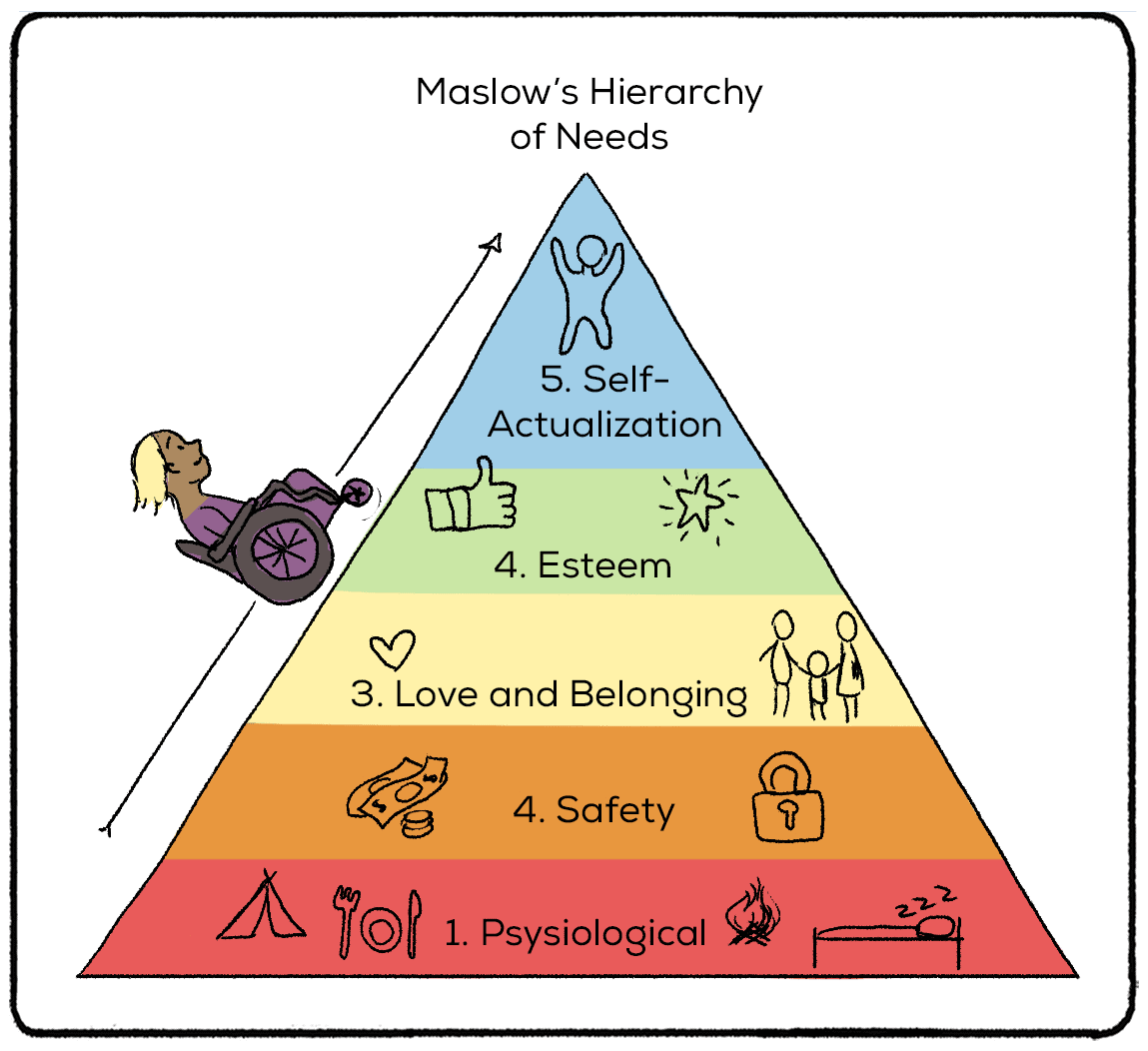Do you have high self-esteem? Do you have low self-esteem? Is it good to have a really high self-esteem?
You hear this term a lot, but do you really know what it means? And when was the last time you looked inward to reflect on how you view yourself and your place in the world?
That is what this page is all about. We’re going to go over the definition of self-esteem, why it’s important, and how to gauge your self-esteem. We’ll also talk about ways that you can improve your self-esteem if you feel like you’re in a funk.

What is Self-Esteem?
Self-esteem is a way that we view ourselves based on our values. In other words, it’s a sense of whether or not we like and appreciate ourselves. Some psychologists have simplified it to the idea of whether or not a person has a favorable or unfavorable opinion of themselves.
Self-Esteem vs. Self-Worth
Self-esteem is very similar to the idea of self-worth, but is more of an internal measure. Self-esteem simply focuses on our individual self. Am I a person of value? Do I like myself? Do I appreciate the skills that I have and the behaviors I display?
Self-worth involves looking at yourself from a much larger scale. Am I a human that is worthy of love? Are all human beings worthy of love?
These are some big questions to ask yourself, but they impact every decision you make in your life. You are more likely to take risks and pursue your passions if you have high self-esteem and self-worth. Mistakes seem less like something that could ruin your life and more like an opportunity to learn something new.
Maslow’s view on self esteem
How important is self-esteem to our overall well-being?
If you ask Abraham Maslow, you might get a tricky answer. Humans need self-esteem and esteem that comes from others. But it’s not as important as say, shelter or safety or acceptance.
Abraham Maslow created a “Hierarchy of Needs” in 1943 - and this concept has stood the test of time in the world of psychology. This hierarchy shows our needs, starting with the most basic (placed at the bottom of a pyramid) to the more complex (placed at the top.) At the bottom are physical needs like a roof over our heads and food and water.
The pyramid has five levels. Esteem is the fourth, right below self-actualization, the most complex need. What this means is that humans who are starving or lonely aren’t craving exactly worried about improving their self-esteem. They are primarily concerned with meeting their more basic needs.
Again, esteem, rather than simply self-esteem, is the need that Maslow discusses. Self-esteem is just one part of this piece of the pyramid.
Factors That Influence Self-Esteem
Self-esteem is an opinion of yourself that is based on many factors. One of those factors is your own behavior. The actions that you take (and have taken in the past) play a huge role in determining whether you are “worthy.”
I point out behavior primarily because it’s possible for you to change your self-esteem. This change cannot happen overnight. Deciding one day that you are going to improve your self-esteem is a great start, but may not be able to dominate over years of behaviors and attitudes that led you to a low self-esteem in the first place.
If you want to raise your self-esteem and lift yourself up to a place where you can chase your dreams, you will need to understand that it will take time, effort, and some behavioral changes to do so. But you can do it. And you are worth the time, effort, and changes that will help you raise your self-esteem.
How to raise your self-esteem
Seek Validation…

Below esteem on Maslow’s hierarchy of needs is love and belonging. Humans crave a community that accepts us for who we are. This could mean your family, a group of friends, a sports team, the fellow students at your wood shop class, etc.
These people accept you and are most likely to validate you. This validation can help you see your potential and your worth. The more you hear that you’re loved, special, and worthy of respect, the more you will believe it.
The opposite is true. If you notice that you’re hanging out with a crowd that is constantly putting you down or family members that don’t accept you for you, it might be time to cut ties. Consistently hearing that you need to change or that you are just not good enough can have a significant effect on your self-esteem, too.
...But Not On Social Media

One place that people, primarily young people, look for validation is social media. We post Instagram photos and wait to see how many people “like” it. We post a story to Snapchat and continuously check to see how many people have viewed it or commented on it. But this can actively hurt your self-esteem.
Why? Because when we post on social media, we often do so with a filter. We post photos of ourselves on vacation, but not a video of us fighting with our significant other about what time we should arrive at the airport. We caption a photo with “I love my friends!” rather than “I feel so lonely when they don’t call me back.”
You know the struggles and obstacles in your life. But you only see the achievements and successes of the people who are posting on social media. And even if you actively try not to compare yourself to the post on your newsfeed, you still will. We all do.
Instead, log off. Set timers for how long you can spend on social media. Delete the apps off your phone and take some time to read, watch a movie, or take a walk instead.
Pursue Your Passions (And Celebrate Each Achievement!)
Another alternative to scrolling through your phone is going out and doing the things you want to do.
It can be scary to pursue your passions. The fear of failure is often elevated when you have low self-esteem. But that’s why it’s so important to push forward. Don’t get stuck in a cycle of doubting yourself and holding back due to your doubt. It won’t take you anywhere or deliver any changes.
Pursuing a passion requires small steps first. If you want to be a world-renowned painter, the first step usually isn’t painting the Sistine Chapel. First, you might want to take painting lessons. Or try painting a portrait of your dog. Or buying new brushes.
These small achievements don’t seem like much compared to the greater and more meaningful tasks that you dream of accomplishing. But if you want to increase your self-esteem, you have to learn how to value and celebrate each small achievement along the way. You won’t be able to backpack the world until you take small actions like booking a plane ticket, buying a backpack, or saving up your first $5.
When you take the time to congratulate yourself and recognize your efforts, however small, you will begin to build up your self-esteem. Respect the fact that you took the first steps toward creating a better life for yourself. When you allow yourself to bask in this positivity and celebration, you will set yourself up to take bigger risks and gain bigger rewards.
Remember, Self-Esteem Is a Journey
Self-esteem can be impacted by a lifetime of support or a lifetime of rejection and discouragement. Remember, your self-esteem is not going to change (permanently) with just one night of boosting yourself up. Make your self-esteem a priority and give constant attention to building up the image you have of yourself.
